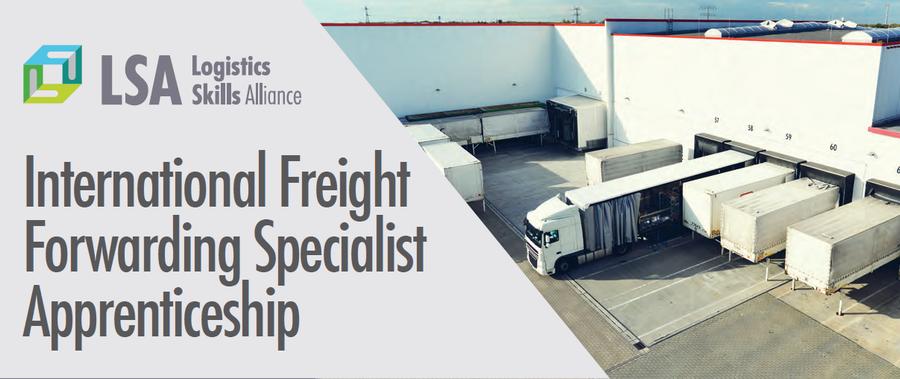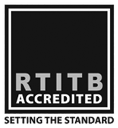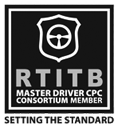Choose, road, air or ocean.
Hot off the press, DfE, Soryah Brown, Institute for Apprenticeships announced Friday April 20th the freight forwarding qualification trailblazer is published. Three streams of opportunity; road, sea or air.
Ref number ST0539 with a funding band grade 9 giving maximum funding at nine thousand pounds.
Employers involved in creating the standard included Kuehne and Nagel, Panalpina, Davies Turner , DHL, EWW logistics, Intl forwarding , Kerry logistics, Leman, Metro shipping, Neon freight, OIA Global, DSV Air & Sea, Dachser, DB Schenker, Intelligent Global Logistics, Maltacourt, Yusen Logistics and secretaried by BIFA.
Joanna Daly, Logistics Skills Alliance, LSA explains,
This is set to bring learning and assessment to a next generation of freight forwarding individuals and raise the level of professional standards with funding of up to nine thousand pounds. Levy-paying companies around Heathrow can draw down the funding and candidates will get the three-year programme free of charge while employed.
It's time for action - to get a full understanding of your access to the funding around Heathrow, call or email Jo for a levy lockdown interview. This email address is being protected from spambots. You need JavaScript enabled to view it.
For full details of the course offered by LSA and to download the newly-approved standard and end-point assessment you can visit our International Freight Forwarding Specialist Apprenticeship (Level 3) page.
Jo explains the role and the detail of the new level three freight forwarding qualification...
The processing of international trade documentation is vital to the UK economy and the demand for international trade skills is forecast to rise. Freight Forwarders implement these key processes. The sector deals with complex customs legislation and has a need demonstrate competence in compliance with customs controls and procedures. Clients require their international supply chain to be fully secure, efficient and compliant.
The apprentice must compile a showcase after 18 months of on-programme learning. The showcase is not a comprehensive portfolio covering all aspects of the standard, rather it is an opportunity to select a small number of items to be used by the apprentice in the professional discussion to exemplify important aspects of the work they carry out for their employer. The showcase must contain between 2 and no more than 5 pieces of evidence. These may be for example, international trade documents completed, calculations carried out by the apprentice or reports and briefings they have prepared for their employer. This evidence must relate to those areas of the Standard where Professional Discussion (PD) is indicated as the assessment method. The employer and/or training provider should guide the apprentice in selecting key, appropriate evidence from their own work during the on-programme stage which they can use in the professional discussion to illustrate their professional competence at the level of the standard. The discussion can be held either face-to-face
Methods of assessment include a showcase portfolio and a professional discussion.
Graded as fail, pass or distinction
Core simulations:
- Customs Entry (Import)
- NES Declaration (Export)
- Basic manual Duty and VAT calculation
- Prepare invoices in line with Incoterms
- Use of Customs Tariff (Volumes 1, 2 & 3)
- Commodity code classification
- Completion of Common Documentation
- Customer Quotation
- Profit and Loss statement – identifying key elements
- Customer Service – scenario
Pathway simulations:
- Air Freight Pathway simulation
- Ocean Freight Pathway simulation
- Road Freight Pathway simulation.
Professional Discussion specification: There will be a structured discussion lasting 65 minutes, covering all knowledge and behaviours in Standard, namely; International Freight Movement, Customs Procedures, Business Finance and Freight Costings, Customer Service and one of the three pathways; Air Freight, Ocean Freight or Road Freight four areas of the Standard; Technical operations, Finance, Safety, and Contingency plans.
The discussion will use a template developed by the end-point assessment organisation and will involve the apprentice and their independent end assessor. It allows the independent end assessor to ask the apprentice questions in relation to: · Their understanding of their job role, duties and responsibilities · Specific parts of the training they have received · Personal development and reflection on the training they have received · The ‘apprentice showcase’ prepared by the apprentice
For details of the course offered by LSA and to download the newly-approved standard and end-point assessment you can visit our International Freight Forwarding Specialist Apprenticeship (Level 3) page.
IFA report the Freight Forwarding role...
International Trade and the role of Freight Forwarders:
The processing of international trade documentation is vital to the UK economy and the demand for international trade skills is forecast to rise. Freight Forwarders implement these key processes. The sector deals with complex customs legislation and has a need demonstrate competence in compliance with customs controls and procedures. Clients require their international supply chain to be fully secure, efficient and compliant.
Role of International Freight Forwarding Specialists:
International Freight Forwarding Specialists are employed to ensure that the company they work for, and their clients remain compliant with all applicable customs, import and export laws and regulations. They understand customs rules, regulations and terms of trade, know where to find information and when to escalate issues. They have specific skills around customs procedures, classification of goods, allocating modes of transport and all relevant paper and electronic documentation. International Freight Forwarding Specialists are responsible for a variety of tasks on a daily basis such as shipment bookings, creating the appropriate documents, liaison with carriers, ports and handling agents, transport requirements, sales quotations, invoicing, financial procedures as well as the many customs processes and regimes they will come across. Clients must be kept informed proactively of progress and this requires skills and behaviours in customer service linked to an appreciation of international cultures, time zones and their effect on transit times. International Freight Forwarding Specialists have the ability to communicate effectively with people from different countries, taking account of differences in working practices.
Pathways in Freight Forwarding:
Apprentices will gain the CORE knowledge and skills and then choose one of three PATHWAYS (Air Freight, Ocean Freight or Road Freight) to reflect the focus of their employer’s operations. In each pathway, additional knowledge and skills will be acquired.





